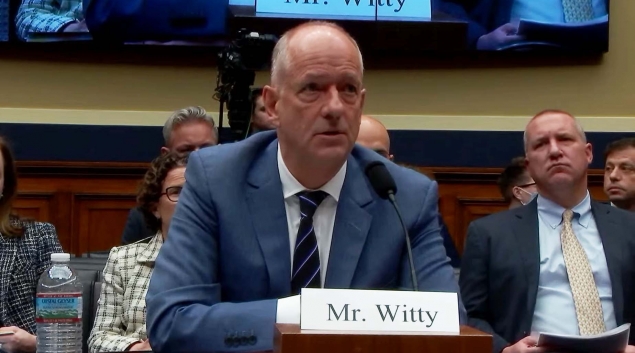Financial/Revenue Cycle Management
Foremost has been the UnitedHealth Group CEO's defense of MA and "misleading" articles published in the WSJ.
AI will transform healthcare with advances in multimodal technology, diagnostic imaging and automation, but its success depends on trust and seamless integration into workflows.
New AI startups are facing difficulty getting off the ground even as the industry leans hard into the technology.
That has culminated in an estimated $21.9 billion in downtime losses over the past six years, a new report shows, with medical organizations experiencing 17 days of downtime per incident, on average.
Most expect greater revenues and improved profitability, according to Deloitte data.
A cyberattack on May 8 against healthcare giant Ascension resulted in the medical data of 5.6 million customers being exposed, according to a filing with the Maine attorney general’s office published on December 20.
WHY IT MATTERS
In June, the health system determined that an attacker gained access to its systems after an employee at one of its facilities inadvertently downloaded a malicious file, believing it to be legitimate.
The organization stated there was no indication that the incident was anything other than an honest mistake.
Months of investigation with third-party experts also led to Ascension determining sensitive data belonging to current and former patients, senior living residents, and employees was potentially exposed.
A December 19 announcement from Ascension noted the compromised information varies by individual and may include medical details such as medical record numbers, dates of service, lab test types and procedure codes.
Payment information, including credit card or bank account numbers, insurance details ranging from Medicaid and Medicare IDs to policy numbers and claims, government identification, including Social Security numbers, tax IDs, driver’s licenses or passports, and personal information such as addresses and dates of birth were potentially involved.
Ascension also confirmed its electronic health records and other core clinical systems, where full patient records are securely stored, were not accessed during the attack.
THE LARGER TREND
Among the other major healthcare breaches in 2024 include a cyberattack against Change Healthcare in February, which impacted 100 million people – the largest breach ever reported to federal regulators.
In April, Kaiser Permanente reported that 13.4 million people were affected by a data breach that exposed patient and plan members' information.
Meanwhile, legislation is being proposed to bolster healthcare cybersecurity defense in the form of the Health Care Cybersecurity and Resiliency Act.
The bipartisan bill, introduced in November, would offer grants to healthcare organizations to help them shore up their ability to prevent and respond to cyberattacks.
Meanwhile, governance remains a concerning weak point in healthcare, even as cyberattacks are becoming more prominent and the risks of IoT medical devices are coming into sharper focus.
ON THE RECORD
Tim Rawlins, senior adviser and director for security at cybersecurity consultancy NCC Group, noted healthcare will always be an attractive target, given the sheer quantity of sensitive data organizations hold and the need to make information available to the medical staff as quickly as possible.
"Basic cyber security measures, individual log ins, multi-factor authentication, and patched, secure and monitored systems will go a long way to preventing these attacks," he said.
Nathan Eddy is a healthcare and technology freelancer based in Berlin.
Email the writer: nathaneddy@gmail.com
Twitter: @dropdeaded209
Advanced approaches will improve health systems' bottom lines while enabling a "more patient-centered and provider-friendly healthcare ecosystem," says one consultant who specializes in data management.
John Saran, a partner at Holland & Knight, says that while many are anticipating longer review periods and larger filing and documentation requirements, questions remain about what changes will happen at the FTC under the new presidential administration.
The bipartisan continuing resolution announced on Monday offers "big wins" for virtual care, and the American Telemedicine Association and other healthcare groups are pleased.
Josh Di Frances, head of incubation at LG NOVA, discusses the company's Mission for the Future Program, highlighting winners of its 2024 Startup Pitch Competition and discussing opportunities for startups at next year’s InnoFest event.









